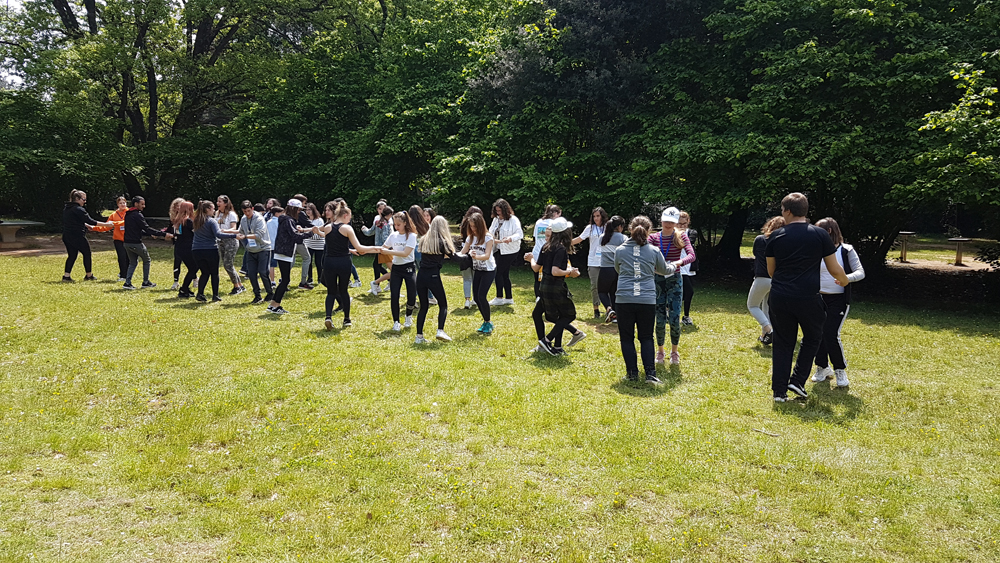Rovinj is presented to tourists as a town of exceptionally rich traditions, primarily made by fishermen and farmers with their “batanas” and “bitinadas” in the wine cellars, but the truth is younger generations do not know almost anything about the life of their ancestors. For this reason and through this project we decided we want our students and those of European partner schools to approach lives of the Rovinj fishermen (pascaduri) and farmers (sapaduri). During the mobility week we involved students in numerous activities that gave them an insight in everyday life of domestic people in the past. First two days of mobility – Food Challenge was held in our well known Lone Hotel where students prepared local dishes with local Mediterranean ingredients. Teachers of all partner schools were the one to taste and decide about the winners of this competition. Also, during the first two days numerous workshops were organized with the aim to teach the students traditional games that were once played on the streets of Rovinj. For that purpose we involved four other schools (local Italian elementary school and Croatian elementary school from town Svetvin?enat and both Croatian and Italian high schools from Rovinj) and numerous other organizations such as Marco Garbin choir (singers of bitinadas), Italian Community, Centro Storico and Centre of Visual Arts Batana. During the school year and mobility week students of O? Juraj Dobrila school took photos with a theme of intangible cultural heritage. Photo exhibition of fifteen young authors named “Through My Window” was opened during Meet and Eat Festival on Thursday in Multimedia Centre. The event had a large audience of about hundred people and many classes of our school visited the exhibition later and next week. Other activities involving the students were Treasure Hunt (done with ActionBound application) with questions about music, gastronomy, art and photography. During this game they were divided into groups and moved across the Old Town. While one group was playing the game others were painting a batana sail with poems on five languages (Croatian, Finnish, Spanish, Portuguese and Greek). On the last day of mobility all participantss visited Brijuni National Park and Pula where they entered the Arena amphitheatre.
All participants learned a lot about Croatian cultural heritage and during workshops also about forgotten traditional games that were once played on the streets. They also had a chance to demonstrate their own games and the Brochure of Traditional Games was issued. With this brochure all the partners will be able to teach these games in their own schools during this and next school year. All participants improved their English language competences and learned about Croatian lifestyle due to accomodation in local families. In agreement with the families who hosted the foreign students they spent their leisure family time (evening, morning) in the way that was spent before the technological era: playing social games, cooking original Istrian meals (fu?i, pljukanci, asparagus, mane?tra). According to the evaluation given to all participants they have liked all the activities and also quality time spent in families.




















